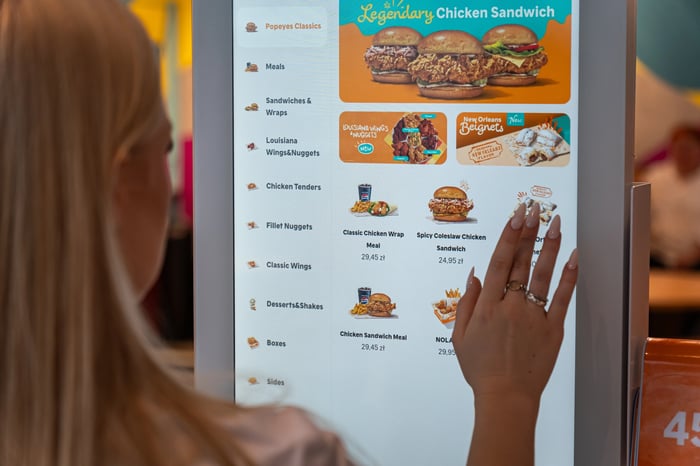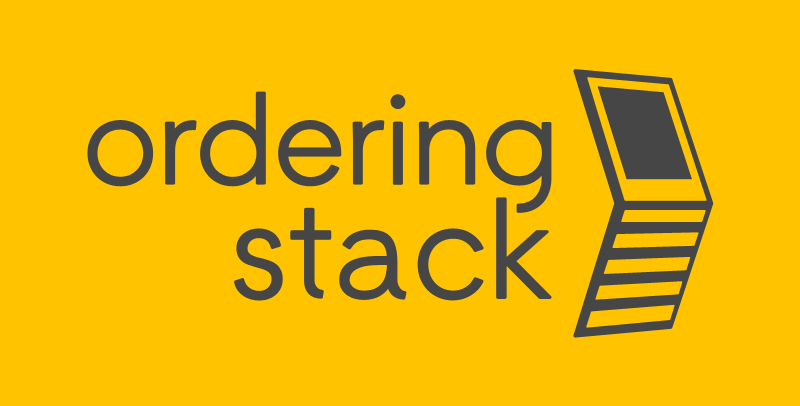Automation and Self-Ordering Strategies Behind Popeyes’ Poland Success
Published: January 23, 2024
Automation and Self-Ordering Strategies Behind Popeyes’ Poland Success
With trust from the client and experience from previous implementations, the Ordering Stack team managed to build the digital ecosystem for Popeyes in Poland in less than two months.
The Polish restaurant market suffered severe changes and challenges during the Covid-19 crisis in 2020. Steadily recovering it is a fertile ground for both new players and existing ones, fighting for a bigger slice of a growing cake.
With the help of the Ordering Stack team, Popeyes, a popular brand originating from New Orleans, entered the market with all digital operations online.
The client
Popeyes is a world-famous fast-food company that sells fried chicken and chicken burgers, with the unique twist of New Orleans and Cajun kitchen. The company was founded in the suburbs of New Orleans in 1972. The company has expanded since then to all states in the US (and Puerto Rico) as well as countries around the world. Currently, there are over 2700 restaurants under the Popeyes brand, with 30 operated by the company itself and the rest being a franchise.
The company is operated by Restaurant Brands International (RBI), an international holding that operates all around the world and is the fifth-largest fast-food company operator in the world.
The company has started its operations in Poland, initially opening restaurants in Wrocław and Szczecin, with the next ones on the way in Warsaw. The company is operated in Poland by Rex International, which is also the operator of the Burger King brand in Eastern Europe.
The challenge
To start the operations in Poland, the company had to cautiously prepare the offering and operations. Despite the fact that Popeyes is a heavyweight brand worldwide, in Poland it was still known only to a narrow group of foodies. Also, the market has a strong presence of comparable fast-food brands with Kentucky Fried Chicken being the best example.
To keep the brand’s performance and consistency, the market entrance had to be dynamic and as impressive as possible. Also, the local market is surprisingly high-tech, with Polish users being used to pay using their mobile devices or contactless with their cards.
To fulfill these goals, REX, the company behind Popeyes asked the Ordering Stack team for support in their expansion on the Polish market.
Our work
To build a comprehensive tech ecosystem that supports the business goals of Popeyes in Poland, Ordering Stack’s team had to:
- Adjust and implement ordering kiosk application, which is one of Ordering Stack suite key features
- Enrich the kiosks with all sales features Popeyes utilize
- Implement the ordering system with the POS system (Oracle Symphony) integration
- Integrate the whole tech ecosystem with brand-owner introduced mobile app
Also, the tech work had to be delivered seamlessly not to threaten the company’s kickstart in Poland. The first day was orchestrated as a family-friendly and PR-powerful event, so any glitch would be a catastrophe.

Implementing the ordering kiosks
Implementing kiosks result in a significant boost in the order value and user experience. These facts were backed not only by the “common knowledge” but mainly by good experiences gathered during the implementation of kiosks in Burger King restaurants owned by the same company.
The Ordering Stack team had to design and implement the graphic interface used by the kiosk to be compliant and fitting to the brand. Also, digital kiosks had to be interconnected with the rest of the company’s systems, including Oracle Symphony POS and Popeyes loyalty app delivered as a part of the business franchise.
Implementing the sales-boosting features
As for every Quick Service Restaurant (QSR), the upsell and cross-sell techniques deliver a significant share of the margin for Popeyes. This is also true for kiosk-based sales. To make the order value and margin as high as possible, the Ordering Stack team included the following features and techniques:
- Bundling and selling predefined sets
– the core technique in QSR, bundling enables one to sell high-margin goods together with low-margin ones to balance the overall order value. For example, it can combine a burger (heavy on work and ingredients) with fries (low effort, one ingredient) and a glass of coke (no effort at all, premade) to sell it bundled and dilute the low-margin ones in higher-margin products. Also, the company can manipulate the prices of each product in a bundle to find some fiscal optimization. For example, in some jurisdictions, there are separate VAT levels for drinks and meals, and the company can set the highest price on a lowest-tax product when bundled.
- Upsell and cross-sell
– the company also can prompt and encourage the user to buy additional or complimentary products when using kiosks, for example with pop-up windows or time-limited offers.
- Convenience
– the kiosks used by the company are also enriched with payment solutions that allow the customers to pay using their cards or mobile devices. The sales tools are also connected with the POS system to ensure that no orders are lost or confused and there is no need for manual labor to transfer orders to a central system.
Integration with the Oracle Symphony POS
Popeyes restaurants in Poland run using the Oracle Symphony POS, a fully digital and online-ready POS system delivered by Oracle. The system is the next-gen version of the Micros POS software that powers multiple businesses all around the world and is a heavy-duty workhorse of the QSR industry, revered and relied on by thousands of companies.
Connecting the kiosks and online sales system provided by Ordering Stack was vital to ensure the seamless operations of the company.
Ordering Stack team was ready to deliver all the required skills and implementations – as an Oracle Certified partner, with our software available in an Oracle Solution Marketplace we are both skilled and experienced to deal with this type of challenge.
Integration with the loyalty app
Last but not least, the whole digital ecosystem of the restaurant had to be integrated with the mobile loyalty app that was delivered by the franchise owner and used worldwide. This has created a challenge with the fact that there was no way to modify the app itself, while not using it was also not an option – it is one of the core brand tools seen worldwide and implemented as a global strategy.
The app was seamlessly integrated with the ecosystem, using the Webcookies and Application Programming Interface.

The effect
It took two months to build the Popeyes digital ecosystem in Poland in from-zero-to-hero mode. With mutual trust and engagement, the Wrocław restaurant was ready to launch and fully operational on day one of operations.
With the aid of the new technologies, the first day was a success itself. Having ensured the back office operations and the business readiness for the opening day, the company could focus on impressing the market with the opening.
The first-day event was also a success, with a family-friendly fair, and an illusionist entertaining the younger guests.
The company aims for a dynamic expansion in the Polish market, with following restaurants planned to be open soon.


